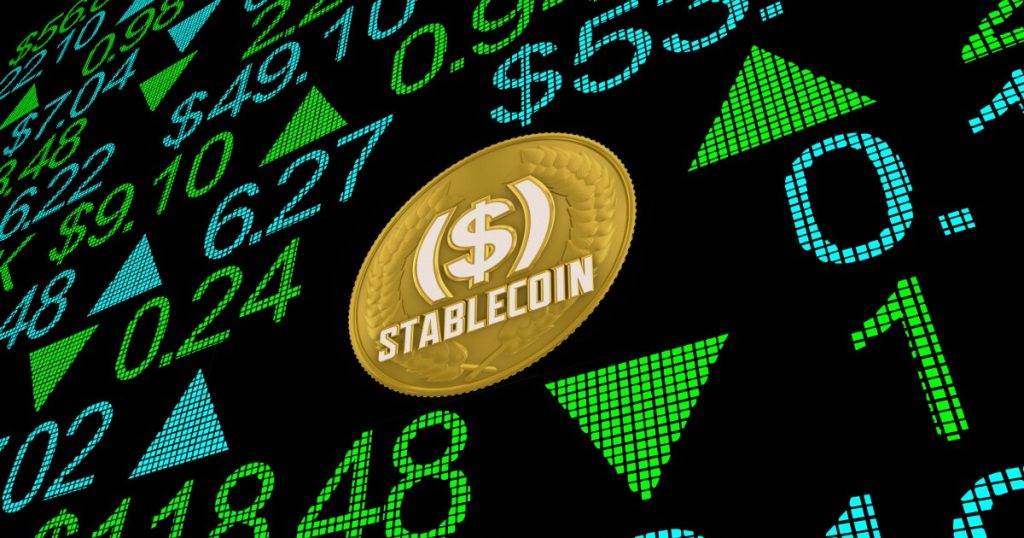iQoncept – stock.adobe.com
A large number of bankers are exploring whether to create stablecoins or deposit tokens with nearly all bankers saying they are concerned that Amazon or Walmart will try to pay interest on stablecoins despite prohibitions in the recently-passed GENIUS Act, a new survey has found.
96% of bankers surveyed by the fintech firm IntraFi said they were either “very concerned” or “somewhat concerned” that the
Though the law prohibits all stablecoin issuers from paying “interest or yield” to individuals, many bankers think sophisticated marketers will find an alternative to spur adoption.
“The last thing we need is for Amazon and Walmart to get into banking through stablecoins,” said Brad Bolton, president and CEO of $212 million-asset Community Spirit Bank in Red Bay, Alabama.
Stablecoins have gained traction due to the passage of the GENIUS Act with bankers lured by what they think may be a growing, profitable industry. Bankers are also worried about check fraud, according to the survey from IntraFi, to be released Wednesday. Survey respondents also weighed in on the economy, saying economic conditions have improved slightly in the most recent quarter.
Stablecoins are “something that is new, and I think there would be a fear factor adopting that on a very broad basis unless other companies can convince the public that this is something they need,” said HD Barkett, senior managing director at IntraFi. “Certainly some of the folks that are going to be involved in this are brilliant marketers.”
The survey, conducted from June 30 to July 14, received 455 responses primarily from CEOs and CFOs of banks with assets below $10 billion. IntraFi, in Arlington, Va., invented reciprocal deposits, which allow banks to offer higher levels of Federal Deposit Insurance Corp. insurance to their customers.
Banks have been kicking the tires on tokenized deposits and
Banks are also considering
Still, it is unknown whether consumers will migrate toward using stablecoins or tokens versus credit cards, which have consumer protections from fraud, interest rate hikes and unfair billing practices under the Credit Card Accountability Responsibility and Disclosure Act of 2009, known as
Bankers also continue to tell regulators that they want something done about rampant
Last month, the Federal Reserve, FDIC and Office of the Comptroller of the Currency issued
Fed Vice Chair for Supervision Michelle Bowman wants to find a solution to check fraud, experts say. When the RFI was issued, Bowman said that check fraud
The survey shows that bankers are pointing their fingers at the bank of first deposit, typically the largest banks such as JPMorgan Chase and Bank of America, where customers first deposit a check.
An overwhelming 82% of bankers surveyed said the bank of first deposit is slow or uncooperative in
“It is clearly an issue but as far as I know nobody’s offered a solution where there’s consensus,” said Barkett at IntraFi.
In the survey, 82% of bankers said they want regulators to outline clearer rules on which institutions are ultimately responsible for reimbursing customers, and 73% want more collaboration with banks to ensure a quicker resolution to disputes.
Bolton, at Community Spirit Bank, said his customers are immediately reimbursed for fraud that in some cases amounts to hundreds of thousands of dollars. But often the bank has no contact at a big bank to resolve the dispute and get paid.
“All we’re asking them to do is honor
Bolton said check fraud is “targeting small businesses more than anything,” with criminals opening bank accounts online and making what appear to be regular deposits to the account before starting to deposit fake checks.
“Everybody talks about the problem of check fraud but there is no repository for regulators to see the magnitude of it,” Bolton said. “There is nowhere on the call report for us to report check fraud.”
In the survey, 71% of bankers said they want regulators to offer more support in tracking and sharing fraud information across institutions.
As for the economy, bankers see moderate improvement, with roughly 50% saying the economy hasn’t changed compared with a year ago, and 28% saying there has been a moderate improvement compared to 20% that think the economy is moderately worse.
Looking forward, 43% of bankers surveyed said economic conditions will stay the same while bankers are split with 27% think the economy will get worse and 27% predicting it will get better in the next year.

